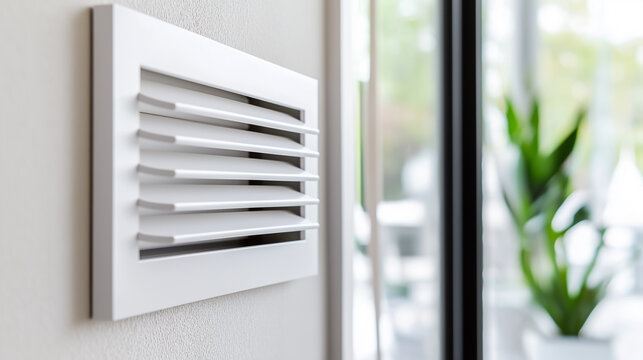Owning a pool is a terrific experience that adds tremendous enjoyment to your home. However, one of the most recurring frustrations for pool owners comes in the form of a leak. Many homeowners wonder, how to find a leak in a pool without resorting to expensive professional services. Delightedly, this guide will walk you through the step-by-step process of identifying leaks, saving both water and money. Whether you’re a homeowner or a real estate developer considering pool maintenance, this is an essential read.

Why Is Detecting Pool Leaks Important?
A pool leak can cause numerous issues, from elevated water bills to potential damage to your property. Finding and fixing a leak prevents unnecessary resource depletion and helps maintain the structural integrity of your recreational space. If you’re dealing with a leak, the first step is understanding why its crucial to address it promptly.
Key signs your pool might have a leak:
- Decreased water levels, even without heavy usage or evaporation
- Wet spots in your yard
- Cracks in and around the pool structure
- Increased water bills or frequent refilling needs
Ignoring these signs could turn a manageable problem into a costly repair. Understanding pool costs can also highlight why fixing leaks fast is essential.
How Does a Pool Leak Occur?
Several factors can contribute to pool leaks. Here are some of the most common culprits:
1. Structural Damage
Over time, wear and tear or shifts in the ground beneath your pool can create cracks in its shell. Whether you have a concrete or vinyl pool, structural damages are common reasons behind leakage.
2. Plumbing Issues
Another major factor involves cracks or breaks in the internal plumbing systems. Even a small pipe crack can lead to significant water loss over time.
3. Aging Equipment
Filters, pumps, and skimmers can deteriorate with age, causing misalignments or cracks that result in leaks. Cleaning your pool filter regularly ensures proper function and can help detect early signs of wear.
How to Begin Finding a Leak in Your Pool?
Before calling in professionals, there are simple steps you can take to find the leak on your own. Start by confirming if your pool indeed has a leak. Here’s the process:
1. Conduct the Bucket Test
- Take a large, clean bucket and place it on a pool step where its partially submerged.
- Fill the bucket with pool water to match the water level outside the bucket.
- Mark this waterline inside the bucket using a waterproof marker.
- Turn off the pools pump and filtration system.
- Leave it for 24 to 48 hours and check the water levels.
If the water level outside the bucket drops significantly compared to the water inside the bucket, then theres likely a leak in your pool.
2. Inspect Potential Leakage Areas
Skimmers, return jets, lights, and the waterline are notorious areas for leaks. Thoroughly inspect these components for visible cracks or water seepage.
3. Use Food Coloring for Leak Detection
Food coloring or leak detection dye is a powerful tool. Add a little dye around suspected areas (e.g., lights or skimmers). If the dye flows into a crevice, then you’ve found your leak!
Key Tools Youll Need for Leak Detection
To simplify the process of identifying a leak in your pool, having the right equipment is crucial. Here are some must-have items:
- A clean bucket for the bucket test
- Food coloring or leak detection dye
- A flashlight for inspecting crevices
- Basic repair materials (e.g., waterproof cement or patch kits for small leaks)
Visit Investopedias insights to understand how pools can influence property value and why maintaining them is vital.
When to Call in Professionals?
If you’re unable to find or fix the leak using the above methods, it may be time to hire professionals. Pool experts use advanced non-invasive techniques, such as ultrasound equipment and dye-testing tools, to detect and repair leaks efficiently.
Preventing Pool Leaks in the Future
Prevention is always better than repair. Here are some terrific tips to keep your pool in tip-top shape:
- Inspect pool equipment regularly
- Perform routine maintenance, including cleaning and resurfacing
- Monitor water levels for unusual drops
Check out our guide on pool maintenance for additional preventative measures.
FAQs About Finding a Pool Leak
1. How can I tell the difference between evaporation and a leak?
Use the bucket test mentioned earlier. Compare the drop in water level inside the bucket to the pools water level. If the pool water drops more, you have a leak.
2. Is it safe to swim in a pool with a leak?
Its not ideal to swim in a pool that has a leak, as it could lead to structural cracks or unsafe water conditions. Always address leaks promptly.
3. Whats the average cost of repairing a pool leak?
The cost depends on the severity of the damage, ranging from $150 for minor leaks to a few thousand dollars for structural repairs. Learn more about pool-related expenses.

Conclusion
Figuring out how to find a leak in a pool can seem daunting, but with the steps outlined here and a bit of patience, you can efficiently locate and address the issue. Remember, regular maintenance and prompt action are your best allies against leaks. If you’re still stuck or notice excessive water loss, dont hesitate to consult a pool professional. Lets keep your pool in delightful shape, ready to create memories for years to come!
This article contains affiliate links. We may earn a commission at no extra cost to you.




